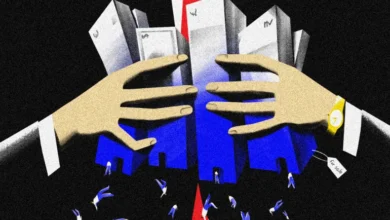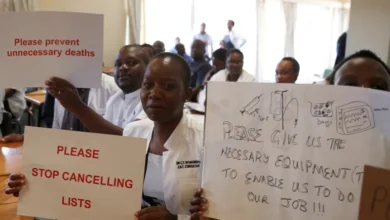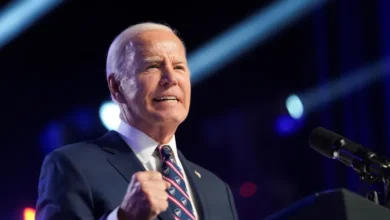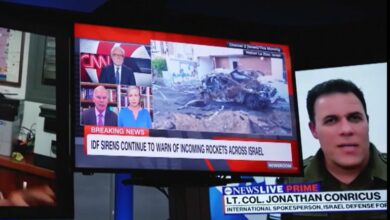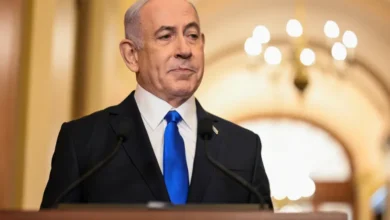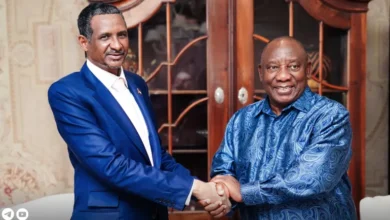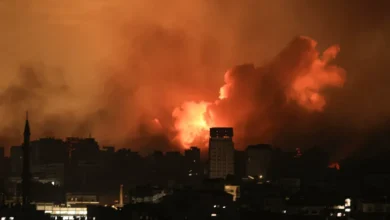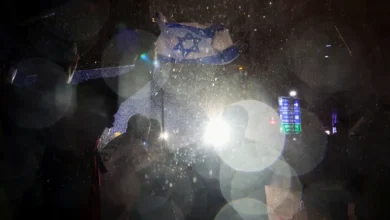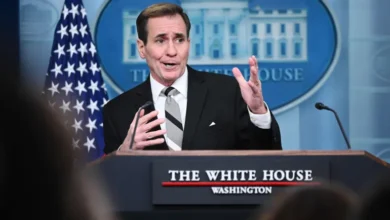Taking a page from the French anti-Islam playbook, UK redefines ‘extremism’
Omar Suleiman
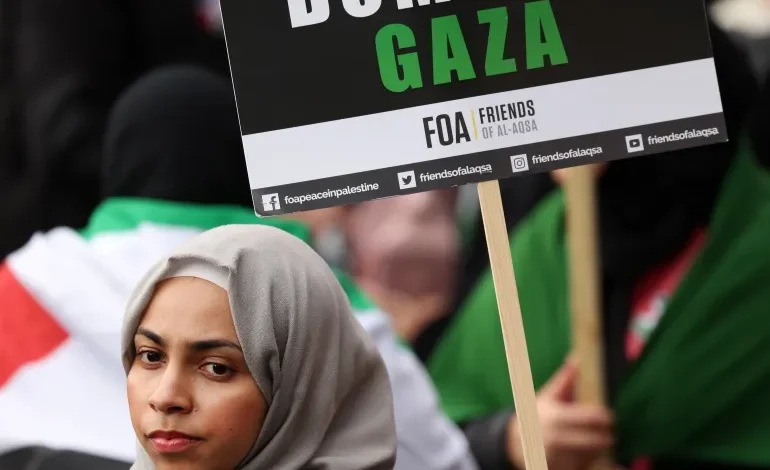
As the genocide in Gaza continues to be streamed live to our screens, many Western governments are not only refusing to end their complicity in the slaughter, but also trying to silence and demonise the Muslim movements and organisations resisting the Israeli occupation within their countries’ borders.
In January of this year, the British government proscribed Hizb ut-Tahrir as a “terrorist” organisation, making it a criminal offence to belong to or invite support for the decades-old movement. No matter your view on the movement itself, this proscription is clearly a convenient political play.
In the post-9/11 era, Hizb ut-Tahrir has repeatedly been threatened with proscription and aggressively surveilled under the country’s inherently Islamophobic counter-radicalisation programme, Prevent. Former Prime Ministers Tony Blair and David Cameron tried to outright ban the group, in 2005 and 2010 respectively, but both times Home Office lawyers concluded that the group did not engage with or glorify any form of violence and advised that it should be allowed to continue its activities.
There is no suggestion that the group has since changed its approach to violence, or committed any crime under British law, so its official banning appears to be nothing but a French-style attempt at framing any Muslim movement, ideology or political expression that appears to challenge Western norms as violent and a threat to national security.
This week, the British government took yet another page from the French anti-Muslim playbook, and redefined “extremism” in a blatant attempt to subjugate and marginalise British Muslims who are taking a stance against the genocide of Palestinians.
In a clear attempt to curtail weekly pro-Palestine demonstrations attended by hundreds of thousands, and amid wider attempts to conflate all pro-Palestine activism with extremism, Communities Secretary Michael Gove announced that the state has expanded the official definition of extremism.
The new definition, Gove revealed, would include “the promotion or advancement of an ideology based on violence, hatred or intolerance, that aims to negate or destroy the fundamental rights and freedoms of others” or attempts to “undermine, overturn or replace the UK’s system of liberal parliamentary democracy and democratic rights”. It would also classify those who “intentionally create a permissive environment for others to achieve” these aims as extremists.
While the former definition focused on actual acts of violence, this new one is broader and much less precise. It appears to have been purposefully crafted to open the door to loaded, ideologically driven interpretations that could lead to the branding of all Muslim thought and political action not explicitly approved by the government as “extremism”. The inclusion into this definition of those supposedly creating “a permissive environment” for extremist behaviour is especially dangerous, as it could result in the arbitrary criminalisation of large segments of Muslim civil society in Britain.
For years, France has used a loose, ideologically-driven definition and understanding of secularism to marginalise, criminalise and subjugate its citizens originating from its former colonies, who are overwhelmingly Muslim.
Today, with this new, loose and ideologically-driven definition of extremism, Britain is attempting to do the same to British Muslims, who are standing up in support of Palestinians facing genocide and doing so with ever-increasing support from other Britons of conscience.
The global Muslim community, which stood with French Muslims as their government tried to crack down on their basic rights under the guise of secularism, will also be firm in its support for British Muslims as their government attempts to curtail their rights under the guise of “fighting extremism”.
In a speech last week at the House of Commons, Gove suggested that a number of mainstream Muslim organisations, such as the Muslim Association of Britain (MAB), may fall foul of this new definition of extremism and as a result be banned from access to public money, ministers and civil servants.
In response, the MAB, known for the extensive role it played in anti-Iraq war protests and movement in Britain, condemned the government’s redefinition of extremism as “a cynical move to appease the hard-right, targeting mainstream British Muslim organisations” and challenged Gove to repeat the allegations without parliamentary privilege so they can sue.
Other Muslim media organisations like 5Pillars were under threat of being included in the government’s list of extremist groups, only to be eventually excluded. Dilly Hussain, the editor of 5Pillars, responded to the initial suggestion that the media platform would be on the extremist list by saying, “it’s not the job of Rishi Sunak, Michael Gove, or [the UK Prime Minister’s office] to be labelling and targeting members of the free press [with] whom they ideologically disagree with while claiming to be champions and upholders of “freedom of expression”.
Other British Muslim civil society organisations such as Friends of Al-Aqsa, which had a prominent presence in protests against the genocide in Gaza, and CAGE, which led the efforts to challenge France’s crackdown on Muslim civil liberties, are also facing the risk of being classified as “extremist” under the new definition. Even a mainstream mosque like the Lewisham Islamic Centre is under threat due to the initial inclusion of its Imam, Shakeel Beg.
The British government’s redefinition of extremism requires deep scrutiny because it amounts to a feigned reinvention of what “extremism” actually means. Muslim Engagement and Development (MEND), a well-established NGO, referred to this in its response to Gove’s slander. “Victory for resistance to Gove’s extremism, he has NOT placed MEND on an extremism list because the facts don’t allow it. Instead, he uses parliamentary privilege to slander.”
As Muslims, we must be proactive in condemning the thought policing of the British Muslim community. We must speak loudly against the British government’s efforts to silence and criminalise Muslim civil society for thought crimes, especially at a time when the same government is complicit in a genocide against Muslims in Gaza. And when we speak up, we must speak up for all groups and organisations facing such baseless and discriminatory attacks. This includes groups that may have ideas or approaches that aren’t representative of the majority of Muslims. At a time when Islamophobia and anti-Palestinian bigotry is on the rise, we cannot allow the British government to pick and choose which Muslims have a right to cultivate ideas, campaign or protest – we should stand firmly in defence of all our Muslim brothers and sisters in the UK and everywhere else. We should also encourage members of the British civil society of all ethnic and religious backgrounds to speak up in defence of Muslims in their country who are currently under a multi-pronged attack. Only if we bravely speak up, and do so together, can we prevent Britain from transforming into an Orwellian dystopia, like France already did.
